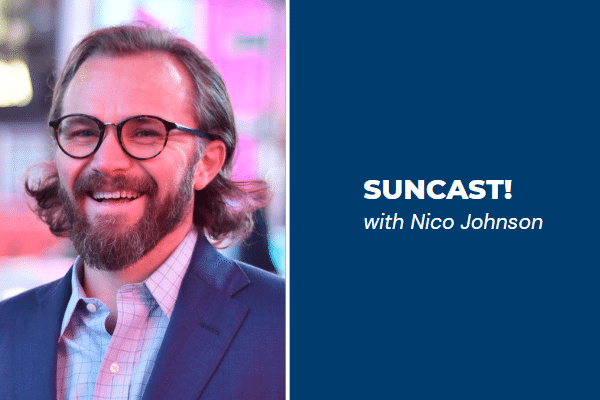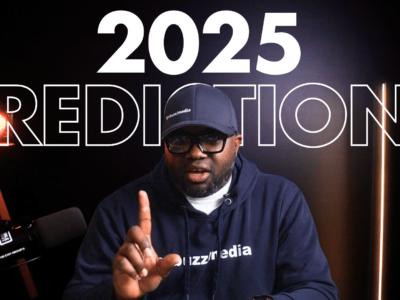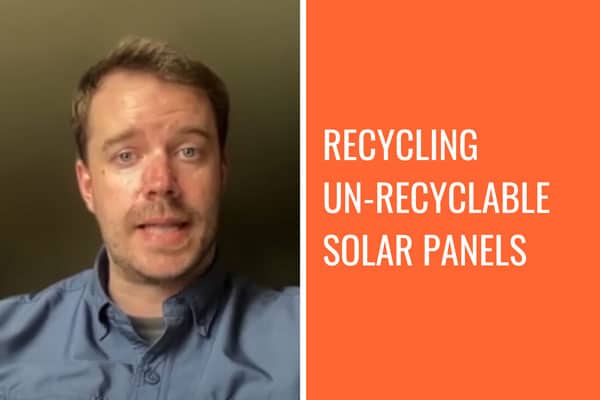Katherine Hamilton wants to ensure we use all our available tools — technology, smart business models and public policy — to create a desire and a will to move forward on climate change.
It’s a broad and practical perspective from a renowned entrepreneur and clean energy advocate with a wealth of knowledge and expertise.
Katherine is the chair and co-founder of 38 North Solutions, an 11-year-old Washington, DC-based public policy firm. With expertise and experience in clean energy, entrepreneurship, the environment, sustainability, technology, and venture capital, it helps clients navigate market and policy challenges and opportunities.
Listen to the podcast:
Katherine said 38 North has a unique ability to merge an understanding of policy and business to advance an organization’s economic success and mission.
“Something we’re really good at is getting to the nut of the problem and determining what we need to do to solve it,” she said.
38 North works with everything from pre-Series A startups to multi-national corporations. “You find folks who say, ‘I have this great invention, it’s really cool, it’s going to solve this incredible problem, and everybody should buy it.’ And yet, they aren’t,” she explained.
38 North closely examines each company’s mission and spends time with its leaders to understand its objectives, identify barriers to success, and determine policies it would be beneficial to influence. Katherine compared it to repeatedly solving unique puzzles, each requiring technical knowledge and practical communication skills to convey complex ideas to policymakers.
As she explained, policymakers generally lack the imagination to grasp the possibilities of new and disruptive technologies. Educating them improves their ability to accept new ideas and understand how their actions can support the latest innovations.
38 North typically educates policymakers about unfamiliar areas and presents existing policies, such as investment or production tax credits, in broader or different contexts. She said providing them with relatable examples and helping them connect the dots between the new and the familiar help to bridge gaps — a crucial aspect of its work.
Katherine has a way with words and a record of action.
In April, she was named a non-executive director of Glasgow, Scotland-based Smarter Grid Solutions, an enterprise energy software company with a unique end-to-end approach to Distributed Energy Resource Management Systems (DERMS) to deliver net zero energy systems.
It’s the latest of numerous appointments and accomplishments for the former co-host of “The Energy Gang” podcast. Katherine credits that opportunity for increasing her credibility and opening doors to global engagement through organizations like the World Economic Forum.
She is one of kWh Analytics’ #Solar100 Thought Leaders, received a Cleanie Award as Entrepreneur of the Year in 2018, regularly contributes to industry journals, and mentors aspiring energy leaders.
A native of Virginia, Katherine has a multigenerational tie to energy. “My grandfather worked for the power company — he just called it The Company — and he always had aspirations all of [his grandchildren] would become engineers,” she recalled.
“I was an engineer, but only by training, not education. But my dinner table conversation was very different because my father (John Heil) is a professor of philosophy,” she explained.
Her dad often asked Katherine and her brother to solve logic problems before he excused them from the table.
“My mother was very much of a homemaker when I was in my formative years. And she was the engineer in the family. She did everything; she could do anything. And she taught me — you cannot even imagine all the stuff I know how to do because of my mother,” Katherine said.
Interested in hearing more about what Katherine knows and the things she can do?
Katherine discusses her experiences working at Virginia Power (now Dominion), starting with a summer job at the company’s headquarters in Richmond.
She worked on a technical writing project but later decided to pursue a career in writing and
illustrating children’s books. In search of opportunities, she became an au pair in Paris and gained a degree there. Returning to the United States, she took a job at a law firm before eventually joining the power company as a service representative.
As a service representative, she designed electric service for customers in Alexandria, Virginia, which required knowledge of vaults, transformers, duct banks, and drainage systems — and supplemental night classes in engineering.
While at the power company, she witnessed the need for innovation from load growth and high-rise building construction. The company had to be creative and implement standby generation rates, thermal energy storage rates, and other approaches to meet increasing demand.
The utility industry has changed significantly since then, with more technologies and tools available. She believes utilities can benefit from advancements in technology and public policy and should partner with their customers by providing access to their energy use data.
Join us for today’s podcast to learn more about how she continues to shape the clean energy landscape with her extensive experience, international policy expertise, and dedication to a greener future. Oh, and did we mention her first interaction with the White House, where she innocently sent a package mistaken for a bomb? You’ll have to listen to hear the story.
“A lot really bad decisions are made out of fear. And I would just say that’s just humanity across the board, that if you’re making a decision out of fear, it’s probably not going to be a good one. It’s a fight or flight decision.”















Comments